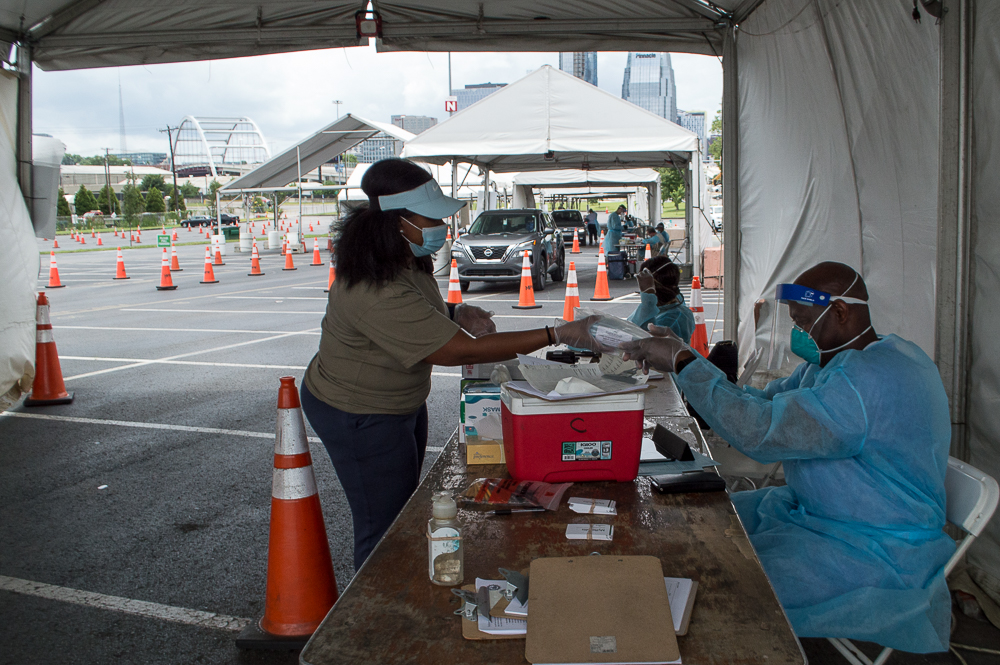
When the tents went up, workers thought the testing center was only a short-term job. Sixty-seven weeks later — amid an increase in vaccinated people and a decrease in the positivity rate — the city is closing the location.
This parking lot has become a sort of community health center without walls. Site logistics lead Amber DuVentre says the staff has built connections with the patients, watching their lives change during the pandemic.
“Just seeing and holding hands with some of the folks who have come in, watching the evolution, you know?” she says. “A man came with his father. His father was symptomatic. They came through to be tested. A few months later, he came back through in tears to let us know his father did indeed have COVID and passed away.”
These stories weigh heavily on her, as they prepare to shutter the site.
But she remembers the triumphs, too. The location made access to testing easy for people without cars, including many experiencing homelessness. At its peak, she says they were testing more than 1,000 patients per day. It was one of the most visited sites in the state.
And they learned a lot along the way, as the science rapidly evolved. Test results have gotten much quicker, and they transitioned from the more uncomfortable nasopharyngeal swab to just a nasal swab.
“Some people still come by and be like, ‘Are you going to go all the way up my brain?'” jokes Dr. Olayinka Otukpe, who does testing.
Workers at the site feel a mix of gratitude and lingering concern, DuVentre says. From their site, they watch people ride by on the city’s party buses, unmasked and heading to crowded honky tonks on Lower Broadway.
“Our hope is just that the people we do see out, unmasked and exhibiting pre-COVID behaviors have indeed been vaccinated,” DuVentre says, “and are still taking care.”
Because the pandemic is still not over, she says, even though their work at the site is.

